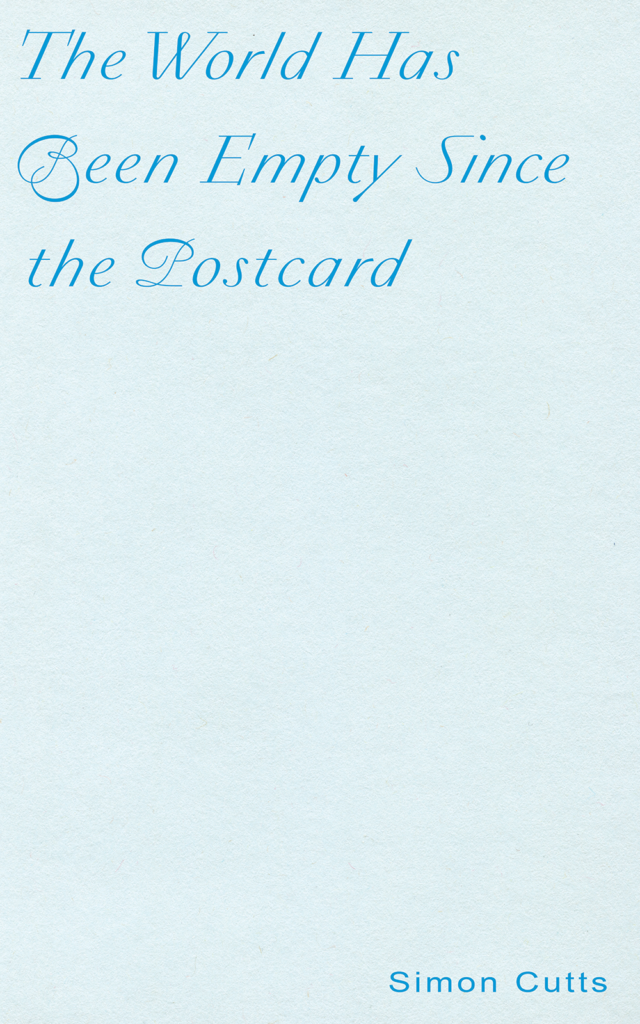Menu
Meal 1
15 Meatballs
Meal 2
10 meatballs
& the day’s
gateau
Meal 3
£ off meatballs
to go

Menu
Meal 1
15 Meatballs
Meal 2
10 meatballs
& the day’s
gateau
Meal 3
£ off meatballs
to go
Trying here to think of ways to describe his books to those who have not yet experienced them, I can only liken them to things like small garden animals, smells, landscapes, or pieces of fruit.
Ben Estes
The World Has Been Empty Since the Postcard reproduces fourteen postcards of a polemical nature by writer, artist, designer, and publisher of Coracle Press, Simon Cutts. The author’s commentary on the context of the production of these ephemeral works and on the nature of their riposte, critique, and satire puts forward an episodic theory of the form and function of the postcard as a means of critical response.
This pamphlet is part of UDP’s 2020 Pamphlet Series: twenty commissioned essays on collective work, translation, performance, pedagogy, poetics, and small press publishing. The pamphlets are available for individual purchase and as a subscription. Each offers a different approach to the pamphlet as a form of working in the present, an engagement at once sustained and ephemeral. To view a full list of pamphlets, click here.
Simon Cutts is a writer, artist, designer and publisher. He is the author of many books of poetry (among them Quelques Pianos and Seepages from Jargon Society) and countless artists books and ephemeral print works. He founded Coracle Press in London in the mid-seventies. Now based in Ireland, Simon and his partner Erica Van Horn continue to produce and publish artists books, postcards, and books of poetry. A collection of his talks and writings on small press and artists book publishing are collected in Some Forms of Availability published in 2007 by Granary Books and RGAP.
The understated form of the postcard feels like it holds so much potential for Simon Cutts. Sat on the edge of other print runs, but no less impactful, at times his messages appear too big for A6, while others reveal details that could so easily be overlooked. Often two sided, these postcards highlight a series of back and forth exchanges that Cutts instigates with other artists, poets, librarians, collectors, critics, specific pieces of work, places, objects, events, processes and The World. Though the functional properties of the postcard may have changed due to digital technology, there are ideas that would not work in any other form, of which Simon Cutts and Coracle have had many.
Russell Weekes
Cutts’ books are beautiful and maddening. Holding any one of these titles in your hands and flipping through its pages, you wonder how something so incredibly simple could be so utterly confounding. How, with just a few slight moves, Cutts can shift his personal abstract glimpses and relate them into a physical form. Trying here to think of ways to describe his books to those who have not yet experienced them, I can only liken them to things like small garden animals, smells, landscapes, or pieces of fruit. Or perhaps that the thoughts recorded in these books have not actually come from his head, but instead from his knees, or his elbows.
Ben Estes
ISBN: 978-1-946433-40-4
Pamphlet
Staple-bound. 36 pp, 5 x 8 in
Publication Date: May 01 2020
Distribution: Asterism Books (US), Inpress Books (UK)
Series: 2020 Pamphlet Series